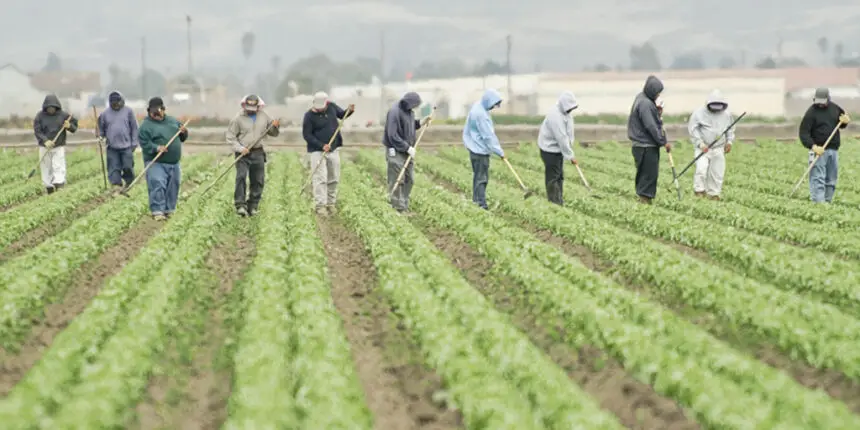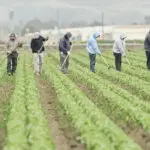Donald Trump’s immigration policy is currently having significant repercussions on the U.S. economy, which relies heavily on undocumented immigrant labor.
Barely six months into the Trump administration, many businesses are already shutting down. The agricultural sector, in particular, is experiencing a concerning rise in bankruptcies, especially among family-owned farms burdened by mounting debt, labor shortages, and unstable crop prices.
According to an analysis by the University of Arkansas, cited by NewsNation, more than 250 farms filed for bankruptcy under Chapter 12 between April 2024 and March 2025. This alarming figure reflects ongoing financial strain in a sector still reeling from the crises of 2018 and 2019. The economic mechanism is ruthless: farmers are taking on increasingly costly loans to cover input expenses. Agricultural loans that once carried interest rates of 3–4% have now climbed to as high as 9%, according to industry experts.
“Agriculture operates on extremely thin margins. When you double loan rates and face falling prices for corn and soybeans, the math simply doesn’t work,” said an agricultural transaction specialist quoted by Mediaite.
The end of post-COVID federal aid has further exposed the vulnerabilities of the system, particularly for small family farms.
Labor shortages are hitting the sector hard.
In an industry traditionally reliant on undocumented immigrant workers, increased ICE operations on farms have worsened the crisis. Employers report serious disruptions to their workforce, with teams at times being abruptly dismantled, according to Mediaite.
President Trump briefly paused these operations in June 2025 following widespread protests… only to reinstate them a week later. The policy reversal further destabilized the industry.
In an interview with NewsNation, Agriculture Secretary Brooke Rollins acknowledged that many farms are now operating at a loss or barely breaking even—jeopardizing century-old farming operations. Her responses remain vague, mentioning long-term structural reforms intended to benefit the sector… but offering no immediate solutions.
This wave of bankruptcies signals a silent transformation of the agricultural landscape.
Struggling farms are increasingly at risk of being absorbed by large agribusiness conglomerates, promoting industrial farming at the expense of family-owned operations.
This shift could fundamentally disrupt the economic, social, and food stability of rural areas—unless the federal government steps in to support farmers and reduce immigration enforcement actions in the agricultural sector.







